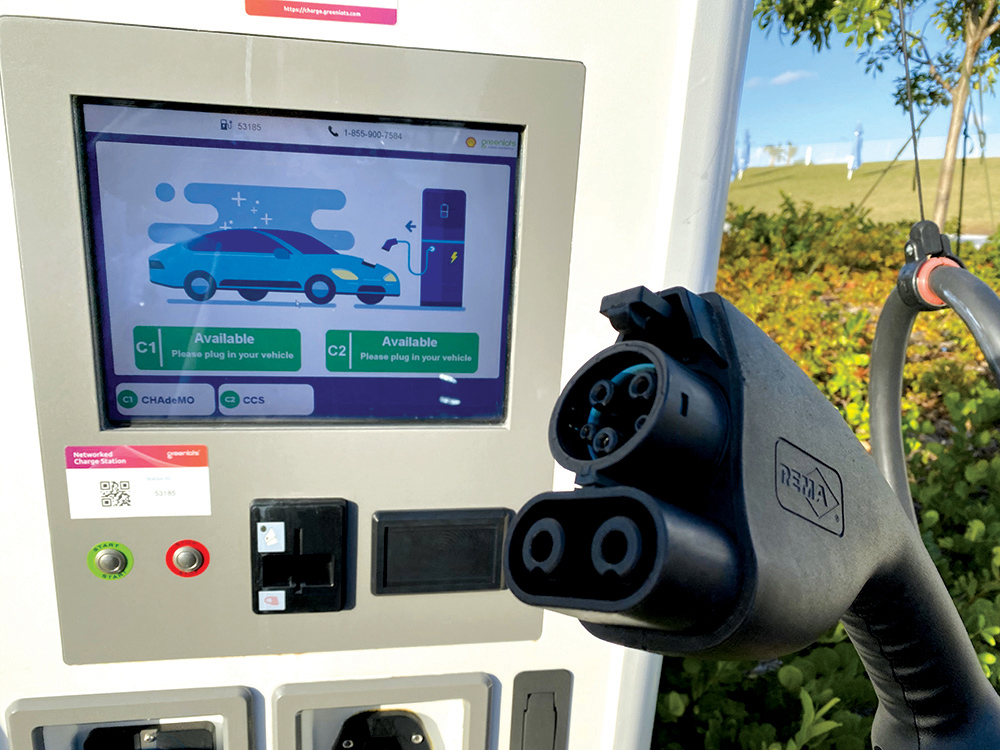Charged’s home state of Florida is something of an EV hotspot—there are an estimated 58,000 electric vehicles in the Sunshine State, and according to the DOE, Florida has the third-largest number of charging stations in the US, behind only California and New York.
This progress is not the result of any particular pro-EV policies of the state government. Unlike the two aforementioned states, Florida offers no state-level incentives to EV buyers. In 2020, and again in 2021, the state legislature introduced bills that would have slapped a special tax on EV owners (both failed to pass). State lawmakers are currently considering a utility-sponsored bill that many say would cripple the state’s booming rooftop solar industry.
So, when we read that a Florida House committee had approved House Bill 737, which would prohibit utilities from passing on the cost of deploying public charging stations to their customers, it sounded like another anti-EV bill. The bill “makes sure that you and I as homeowners, as residential customers of electricity, don’t have to pay the costs of charging stations,” said the bill’s sponsor, State Representative David Borrero (R-Miami).
Borrero’s concern for utility ratepayers is—shall we say—unusual for a Florida lawmaker. In the past, the Republican-controlled legislature has allowed Florida utilities to pass on billions of dollars’ worth of costs to their customers for various unpopular projects, including natural gas exploration in other states, nuclear power plants that were never built, and “upgrades” to, and later the decommissioning of, the Crystal River nuke plant.
Florida, along with several other states, generally prohibits any entity other than a regulated utility from selling electricity to retail customers. However, in 2012, the legislature created an exemption for EV charging. Since then, according to the Tampa Bay Times, the state’s investor-owned electric utilities have been the primary investors in the public charging market.
In 2021, the Florida Public Service Commission approved Florida Power & Light’s request for its customers to finance $175 million worth of charging infrastructure. Duke Energy won approval for $63 million, and Tampa Electric for $2 million.
Borrero argued that this amounts to a subsidy for more affluent EV drivers, at the expense of ICE drivers, and drew a comparison to the argument that Florida utilities are making against net metering, which they claim benefits those who own solar systems at the expense of those who do not. Some industry analysts consider the argument to be a spurious one (rooftop solar currently generates about 0.5% of Florida’s electrical energy). In any case, it’s akin to the position that childless people shouldn’t have to pay taxes for schools. A literate workforce, cleaner air and a more resilient electrical grid are societal goods that benefit everyone.
So, is Borrero’s bill just another of the thousand cuts designed to slow down EV adoption? Well, it’s not that simple. The bill has the support of charging network operator Chargepoint, as well as Racetrac, a gas station chain that has considered the idea of offering EV charging. Some fear that giant utilities could soon dominate public charging, leaving no room for independent network operators and limiting consumer choice.
In a related development, Florida Senator Jeff Brandes recently wrote an op-ed in which he called for utilities to eliminate peak demand charges for EV charging stations.
Allowing utilities to pass on the cost of building charging stations to ratepayers “gives the investor-owned utilities a significant unfair competitive advantage over third parties like gas stations, or other electricity pump-station manufacturers from being able to enter into the field,” Borrero argues. “The current framework has the effect of preventing other companies from also participating in this field.”
This is a battle that’s also being waged in other locations. In 2015, California enacted a law that allowed utilities to have a central role in rolling out infrastructure, but included measures designed to protect independent charging operators. (ChargePoint supported the law, as did several of the investor-owned utilities).
The Florida charging bill may not become law this year. The Florida legislature has a full (and highly controversial) plate this session, and Senator Keith Perry, (R-Alachua), the sponsor of a companion bill in the Florida Senate, concedes that “time may be running out.”
However, as the charging industry expands, we’ll see this issue crop up again. Hopefully, policymakers will find solutions that allow utilities to use their massive resources to get infrastructure rolled out quickly, but not to squeeze out independent operators.
Source: Tampa Bay Times
